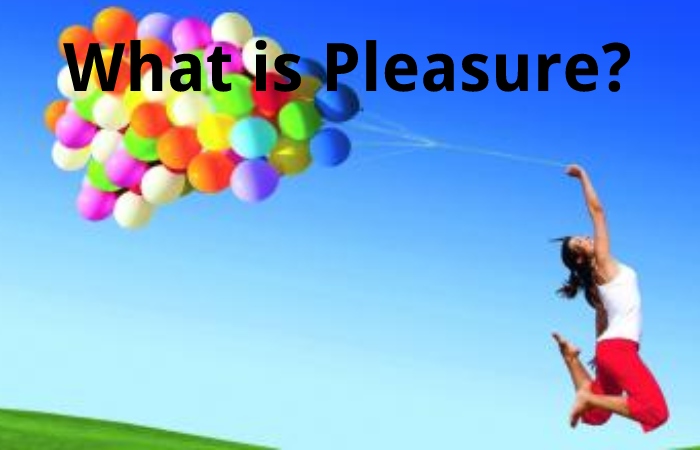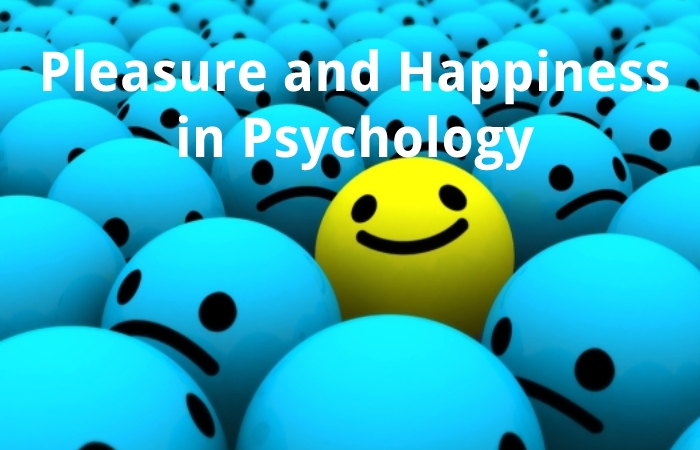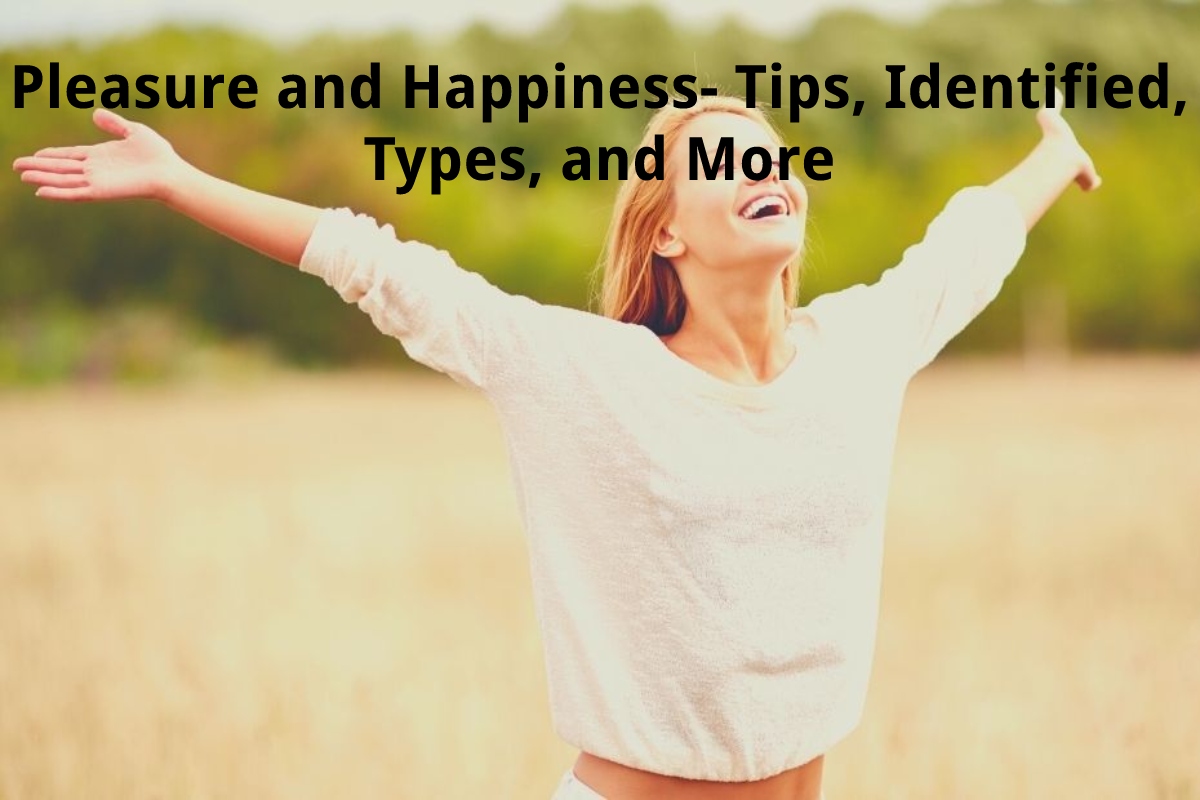Table of Contents
Pleasure and Happiness
There are as many definitions of pleasure and happiness as there are people. It is as if a piece of us had a particular profile in which a very diverse set of elements fit, precisely giving shape to that specific conjugation. Within that universe, pleasure beats.
We could understand pleasure as that sensation – a subjective element- associated with positive euphoria and that, on many occasions, is born from the satisfaction of a need or desire. In other words, pleasure would be closely related to relief and ambition. But, in addition, in tone to happiness, we find another peculiarity: some define it as the absence of pain. And yet, many people seem to find it here, too: we are talking about sadomasochism.
What is Happiness?
A song by Van Gogh’s Ear says that it is a friendly smile makeup. This reflects that in our society, to a large extent, happiness has perhaps become another consumer object, to have a price, and requires us to be who we are not. To be part of a roulette wheel that perhaps adapts us to society but also denatures us somewhat. Thus, we gained discomfort by working more hours and accepting poor conditions to pay for activities we used to do ourselves and in which the community helped. We talk about making food, tidying up the home or taking care of the smallest or the oldest.
Well, studies tell us that this state that we could call happiness achieve through balance, good management of desires, good organization of the pyramid of needs, and social contact with meaning. This social contact also seems to follow a rule: the less expensive it is, the more difficult it is for it meaningful.
What is Pleasure?

Perhaps one of the differences that best limits the space between happiness and pleasure is that the latter has a much simpler (primitive) neural circuit. This leads, among other consequences, that fun can be very destructive. We speak, for example, of addictions. So let’s think that, in some way, pleasure does not stop reinforcing a way to cover a need and, for instance, smoking when someone feels anxiety growing.
On the other hand, contentment seems to be the horizon that responds to that restlessness of the human being that goes beyond his adaptation to the environment. It also has a ration to do with the adaptation/acceptance of its characteristics.
Tips to Achieve Pleasure and Happiness
This is why different authors and psychologists have proposed to benefits separate both concepts radically. It is not about demonizing desire but about understanding that we will not achieve happiness and looking for other ways through it.
Giving a more sensual and less commercial example, a night of sex can provide pleasure, and a lasting relationship can give happiness. One produces euphoric joy, and the other, serene happiness. It is not that one thing is better than another per se; it is that they are two different things; It would be absurd to seek the fulfilment that a stable relationship can provide by concatenating nights of sex with other partners. It would still make more sense to seek happiness in friendships, the work environment, or personal growth, to name a few fields. This example, evident in the sexual and sentimental area, becomes blurred when transferred to other aspects of life.
Tips to Achieve Happiness Without Shortcuts
Before asking by hand if you are happy, you must ask yourself what happiness is. But, unfortunately, many confuse it with pleasure, and this confusion’s consequences go beyond mere linguistics.
Sometimes the search for happiness is abridged to a simple conceptual query. For example, before asking yourself if you are happy, you should ask yourself what happiness is. The truth is that many things we colloquially describe as happiness are mere substitutes, white-label imitations, and low-power photocopies.
Why is Pleasure not Identified with Happiness?
The reason is that there is a big difference between happiness and pleasure.
Pleasure is a momentary sensation produced by something external – a good meal, financial gain, sexual activity, etc.
Pleasure is related to the pleasurable experiences of our senses.
We can confuse these positive and pleasant sensations with genuine happiness. However, this type of “happiness” fixes not last long since it depends on external events and experiences.
Likewise, when it comes to pleasures, human being tends to get used to them so that to continue having the same pleasurable sensations, it is necessary to have more food, more money, and more sex, among other things – to feel a similar pleasure.
As a result, many become addicted to these external experiences, needing more and more to continue achieving a fleeting sense of happiness. People annoyed to sell you a new car, a decorative phone, or a house rely on this phenomenon to make you believe that money can buy happiness.
Our Brain is Capable of Differential Pleasure and Happiness
However, your brain knows that this is not true. Money can please you, but happiness has to come from somewhere else.
We have been trained to believe that happiness comes from buying something new, satisfying the desire to eat, or being in the latest fashion.
But scientists who study hormones say our brains can tell the difference between a rush of pleasure and the lasting happiness that is the actual definition of happiness. And it’s a big difference.
Dopamine, associated with motivation and reward processes, is different from serotonin, which is linked to joy and true happiness.
The difference in meaning between “happiness” and “pleasure” is very subtle, but the chemical difference is enormous.
“If you’ve remained told all your life that pleasure is happiness, then, you know, you’ve been misled,” explains Robert Lustig.
Lustig es endocrinology Autor de “The Hacking of the American Mind: The science behind the corporate takeover of our bodies and brains”.
He was one of the primary to study the effects of consuming refined sugar on children, and now he worries that the technology may be working on our brains in a similar, almost addictive way.
Types of Pleasure and Happiness
Physical pleasure: is that which results from the satisfaction of the needs of the organism and that can experience through the senses. For example, the enjoyment comes from eating a good plate of food, the relief of the belly, or the satisfaction of having sex with another person.
Psychic pleasure: it is the one that experiences at the mental level, and that associates with feelings that produce happiness and well-being. If such as humoral, joy, recreation, the feeling of balance, and serenity. In this sense, enjoying a day at the beach, remembering the good times, or having fun with friends. It is part of the activities that produce pleasure at this level.
Emotional pleasure: it is that which comes from the feelings of love and affection that one has for the family, friends, or partner, as well as from feeling socially accepted appreciate by other people.
Aesthetic pleasure: is the product of the appreciation of beauty in an artistic sense. In this sense, it can experience as the contemplation of a work of plastic, scenic, literary, musical art, etc.
Pleasure and Happiness in Psychology

In the psychological area, pleasure is an emotional state characterized by being pleasant that conditions behaviors from the earliest years. For Sigmund Freud, the human condition by the pleasure principle to satisfy the desires of the Id. In this psychic instance, the human being’s most primitive drives and instincts are found, which, in turn, counteract by the Superego and controlled by the I.
7 Differences between Pleasure and Happiness
One of the errors we make is to confuse the term pleasure with the term happiness. Many people equate them and think they are the same but different. You can find definitions on the internet that mix and confuse them all the time. I believe it is essential that you distinguish the difference between changing things. For this reason, in this object. It we will explain the differences between them as expressed in an interview by Doctor Robert Lustig.
- The pleasure is temporary. Happiness is permanent.
- The pleasure is visceral. Happiness is ethereal.
- Pleasure is receiving. Happiness is giving
- Pleasure can achieve with substances. However, happiness cannot achieve with substances.
- Pleasure can experience alone. However, happiness is experienced in social interaction and social groups.
Extreme pleasures lead to addiction through substances or behaviours. But instead, there is no such thing as addiction to happiness.
Conclusion
In our psychology consultation at the Julie Pascual Censer. If we observe that the population is increasingly unhappy. Older people, adults, adolescents, and children are becoming increasingly painful. The depressed state is growing when, paradoxically, more and more people. I have everything and do not stop doing things to obtain pleasure. And it is one of the mistakes of not being happy is to hook on getting immediate satisfaction. So, please open your eyes; we are in an anxious depressed society. It is because it addict to immediate pleasure, leading to frustrated happiness and unhappiness.

